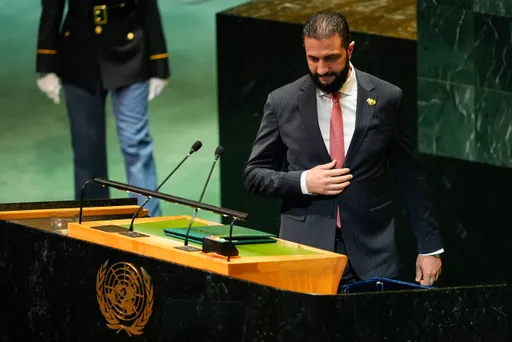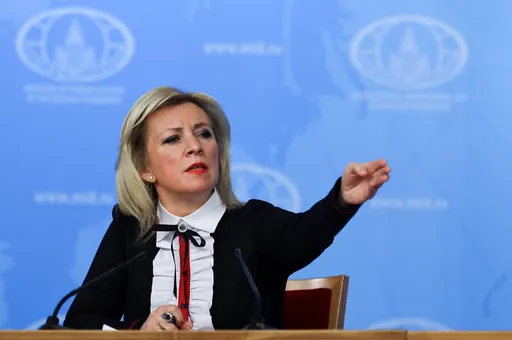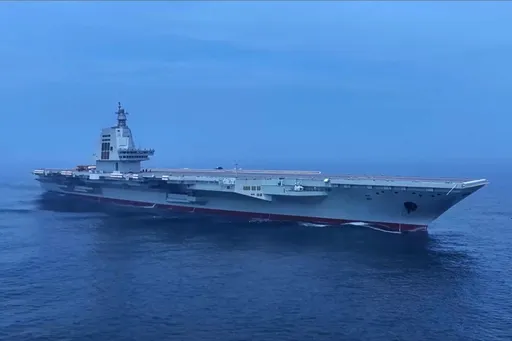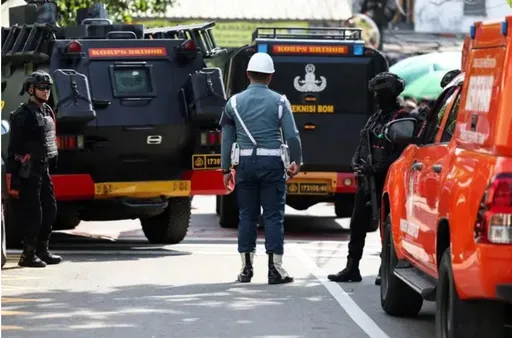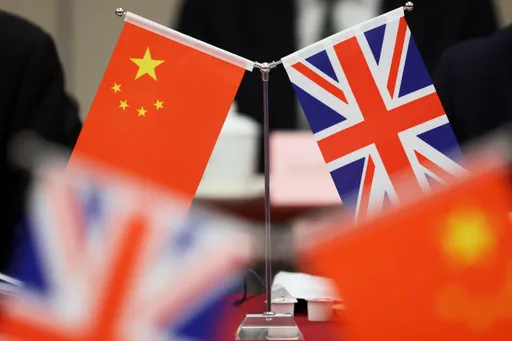China's Defence Minister Li Shangfu has warned against establishing "NATO-like" military alliances in the Asia-Pacific region, saying they would plunge the region into a "whirlpool" of conflict.
"In essence, attempts to push for NATO-like [alliances] in the Asia-Pacific is a way of kidnapping regional countries and exaggerating conflicts and confrontations, which will only plunge the Asia-Pacific into a whirlpool of disputes and conflicts," Li told the Shangri-La Dialogue security summit in Singapore on Sunday.
Li has said that a Cold War mentality was resurgent in the Asia-Pacific region although his country seeks dialogue over confrontation.
He took thinly veiled digs at the United States, accusing "some countries" of intensifying an arms race and willfully interfering in the internal affairs of others.
"A Cold War mentality is now resurgent, greatly increasing security risks," he said. "Mutual respect should prevail over bullying and hegemony."
Li said that conflict with the US would be an "unbearable disaster" but that his country seeks dialogue over confrontation.
He said the world was big enough for China and the US to grow together.
"China and the US have different systems and are different in many other ways," he said in a speech that marked his first significant international address since he was named China's Minister of National Defence in March.
"However, this should not keep the two sides from seeking common ground and common interests to grow bilateral ties and deepen cooperation," he said.
"It is undeniable that a severe conflict or confrontation between China and the US will be an unbearable disaster for the world."
US-China tensions
Ties between Washington and Beijing are strained over a range of issues, including Taiwan, the South China Sea and President Joe Biden's restrictions on semiconductor chip exports.
The US has been expanding its activities around the Asia-Pacific to counter China, including regularly sailing through and flying over the Taiwan Strait and in the South China Sea.
US Secretary of Defense Lloyd Austin rebuked China in a speech at the security meeting on Saturday for refusing to hold military talks, leaving the superpowers deadlocked over many issues.
Li, sanctioned by the United States in 2018 over weapons purchases from Russia, shook hands with Austin at a dinner on Friday but the two have not had a deeper discussion, despite repeated US demands for more military exchanges.
AUKUS pact, Quad bloc
In their latest row, China's military criticised the US and Canada for "deliberately provoking risk" after the countries' navies staged a rare joint sailing through the sensitive Taiwan Strait on Saturday.
Underscoring Austin's words, a US guided-missile destroyer and a Canadian frigate sailed on Saturday through the Taiwan Strait, "waters where high-seas freedoms of navigation and overflight apply in accordance with international law," the US 7th Fleet said.
In Singapore, Chinese Lieutenant General Jing Jianfeng, a senior member of the delegation accompanying Defence Minister Li Shangfu, accused Austin of "overtly or covertly making false accusations against China" in his address.
Speaking with reporters after Austin spoke, Jing said the US has been "deceiving and exploiting" Asia-Pacific nations to advance its own self-interests to preserve "its dominant position" in the region.
He suggested that Washington has been holding on to alliances that are "remnants of the Cold War" and establishing new pacts, like the AUKUS agreement with Britain and Australia and the "Quad" grouping with Australia, India and Japan "to divide the world into ideologically-driven camps and provoke confrontation."
Jing accused the US of hollowing out the one-China policy, accusing Washington of supporting Taiwanese separatists, and reiterating Beijing's claim that "Taiwan is an inalienable part of China's sovereign territory."

















